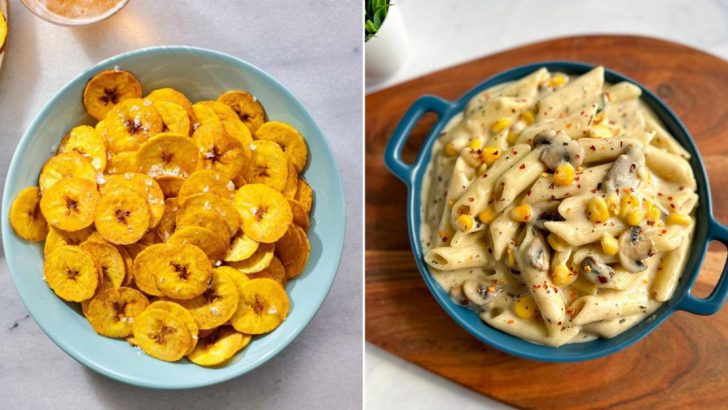Carbs get a bad rap faster than a biscuit at a low-carb meeting, but don’t go tossing every tasty treat out the window just yet.
Here’s the lowdown: 12 sneaky carbs that’ll sneak up on your waistline like a cat burglar, and 14 that you can still chow down on without turning your diet into a sad salad party.
It’s all about knowing which carbs are the good, the bad, and the “nah, thanks” so you can keep munchin’ smart without losing your mind—or your taste buds.
1. White Bread
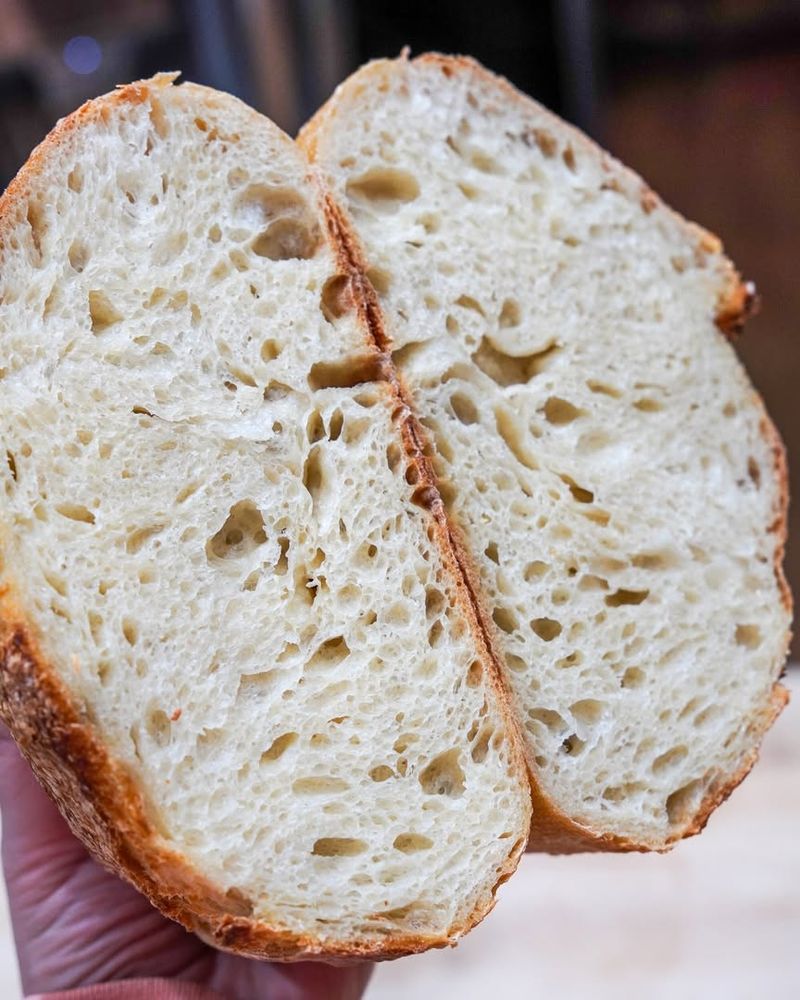
White bread is a common part of many diets, but its high glycemic index can cause rapid spikes in blood sugar levels. These spikes may lead to increased hunger and overeating over time.
Choosing whole grain alternatives provides more fiber and nutrients, which can help regulate blood sugar. This switch can keep you feeling fuller for longer and support healthier eating habits.
2. White Pasta
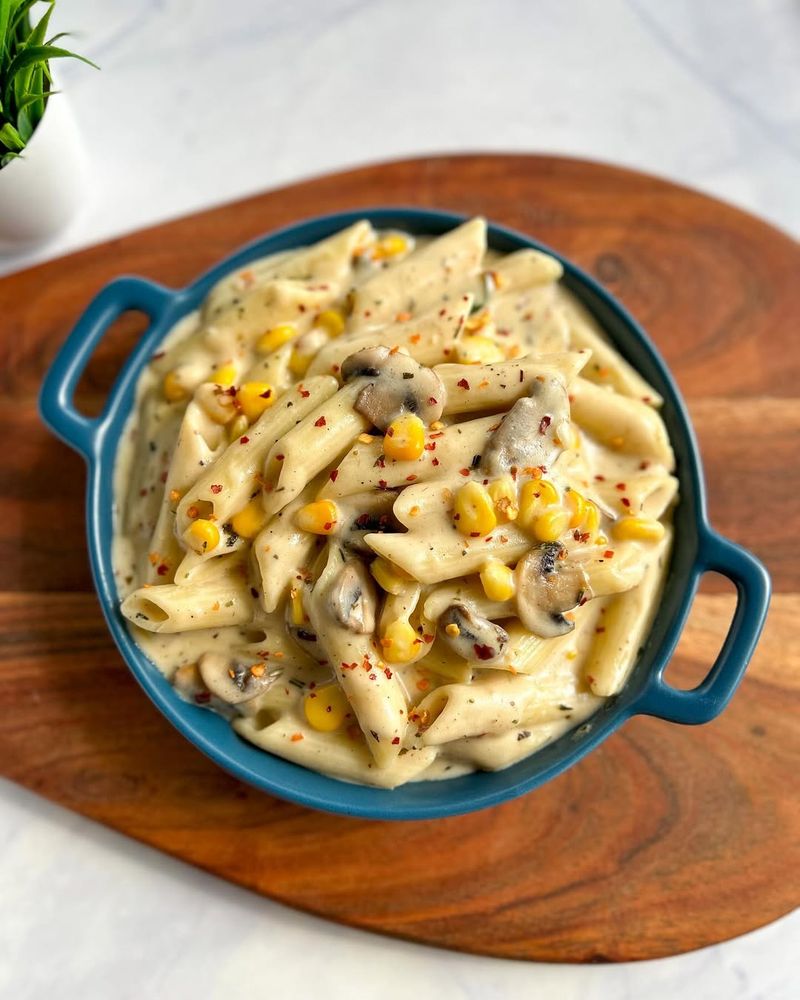
White pasta is a refined carbohydrate that lacks the fiber found in its whole grain counterpart. It can lead to quick energy crashes and doesn’t keep you full for long.
For those watching their weight, whole-wheat pasta is a better choice as it offers more fiber and protein, aiding in better digestion and satiety.
3. Sugary Cereals
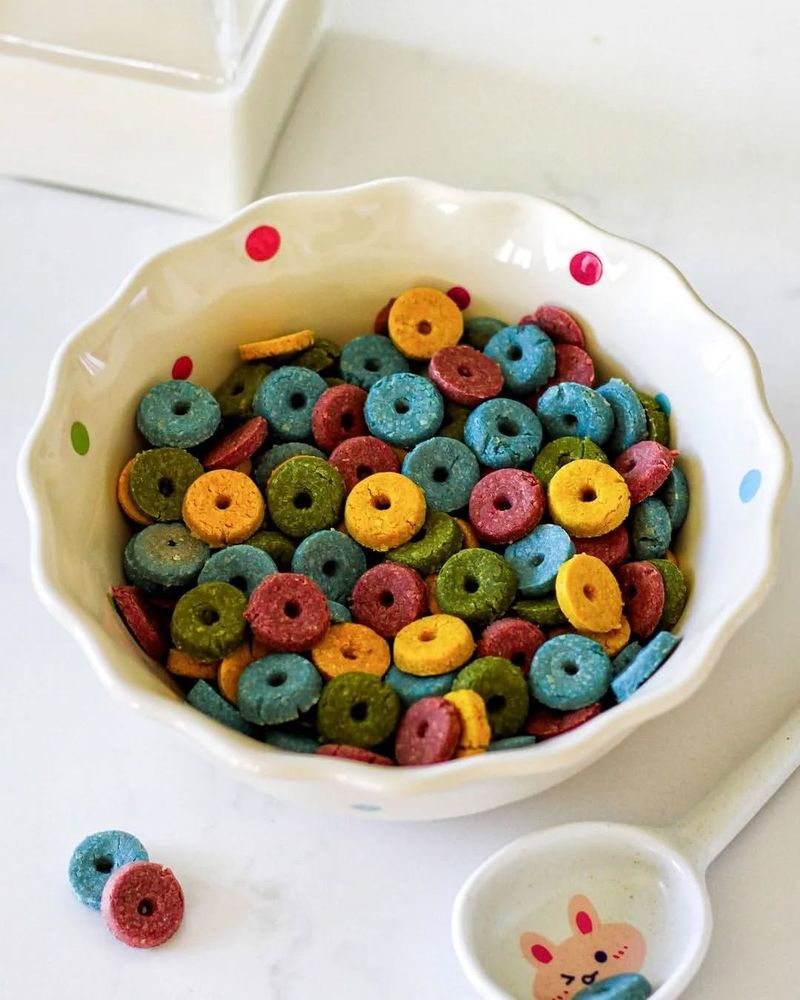
Sugary cereals might be convenient, but they’re often packed with added sugars. These cereals can lead to energy spikes and crashes, making them a poor breakfast choice.
Switching to cereals with whole grains and minimal sugars can provide sustained energy and better nutritional value, helping you start your day on the right foot.
4. Pastries

Pastries are tasty but typically packed with sugar and unhealthy fats. Eating them too often can lead to weight gain and blood sugar spikes.
While indulging occasionally is fine, daily consumption may not be the best choice. For a healthier option, consider snacks like fruits or nuts, which provide essential nutrients without the added sugars.
5. Soda

Soda is high in added sugars and offers no nutritional benefits. Regular consumption can lead to weight gain, insulin resistance, and other health issues.
Replacing soda with water or herbal teas helps lower sugar intake and promotes better hydration. This simple change can support weight management and improve overall health.
6. White Rice

White rice is another refined carb that lacks the fiber and nutrients found in brown rice. While it’s a staple in many cuisines, swapping it for brown rice or quinoa can improve your fiber intake.
These alternatives help stabilize blood sugar levels and promote longer-lasting fullness. They can be a key support in your weight loss journey.
7. Candy

Candy is packed with sugars and offers little nutritional value. Consuming it frequently can lead to weight gain and dental issues.
For sweet cravings, opt for fruits like berries or apples, which offer natural sugars, vitamins, and fiber. These choices promote healthier eating and improve satiety.
8. Cookies

Cookies, especially those made with refined flour and sugar, can be calorie-dense and offer little nutritional benefit. Regular consumption can hinder weight loss efforts.
Choose cookies made with whole grains and natural sweeteners like honey or maple syrup for a more balanced treat. These ingredients add nutrients while keeping sweetness satisfying.
9. Chips

Chips are often fried and high in unhealthy fats and sodium. They can contribute to weight gain and heart issues if consumed regularly.
For a healthier snack, baked chips or veggie sticks with hummus provide more nutrients. They satisfy crunchy cravings without the excess calories and fats.
10. Instant Noodles
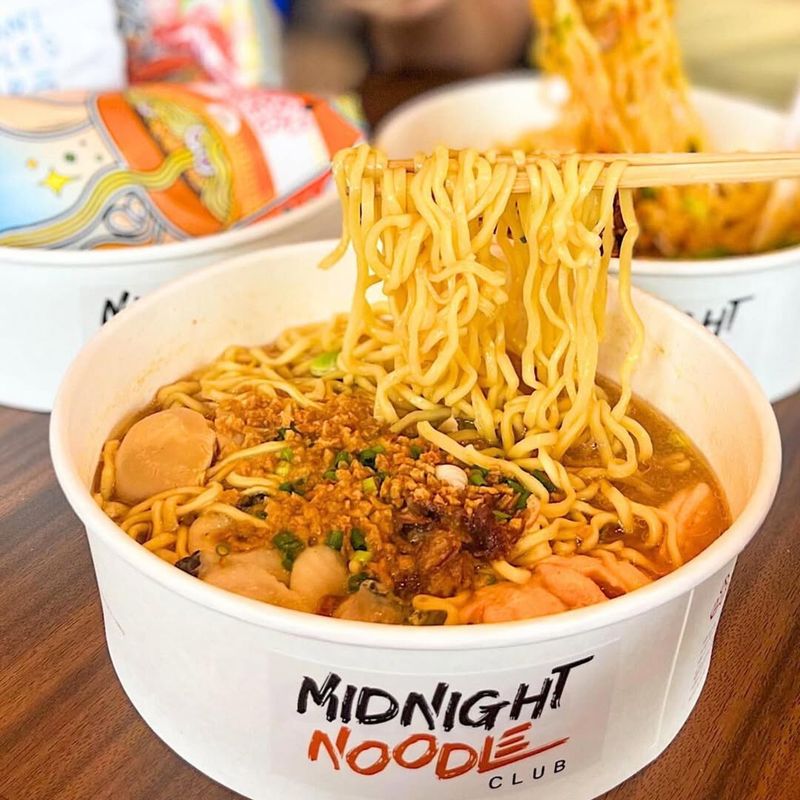
Instant noodles are convenient but often high in sodium and low in nutrients. Consuming them frequently can lead to weight gain and high blood pressure.
Making noodle dishes at home with whole grain noodles and plenty of vegetables creates a more nutritious meal. This approach supports healthier eating habits while adding fiber and essential nutrients.
11. Sweetened Yogurt

Sweetened yogurts can contain more sugar than you might expect. While yogurt itself is a good source of probiotics and calcium, the added sugars can negate its health benefits.
Opting for plain or Greek yogurt with fresh fruits offers natural sweetness and added nutrients. This choice enhances flavor while supporting a balanced diet.
12. French Fries
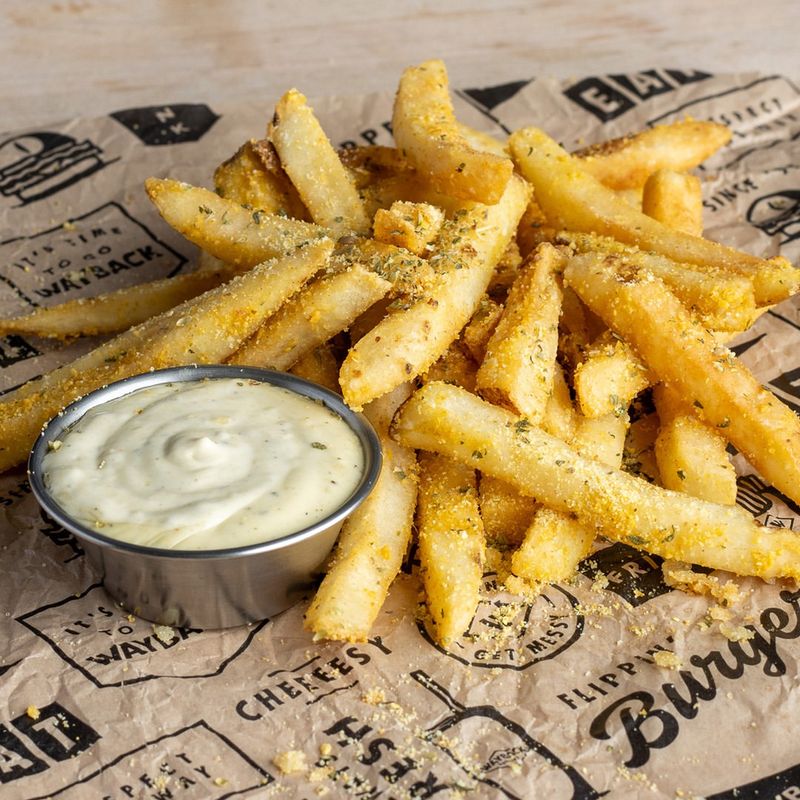
French fries are a popular side dish but are often high in unhealthy fats and calories. They can contribute to weight gain and heart problems if eaten frequently.
Roasting potatoes or sweet potatoes with herbs creates a flavorful, nutrient-rich option. This method enhances taste while avoiding excess fats.
13. Whole-Wheat Pasta
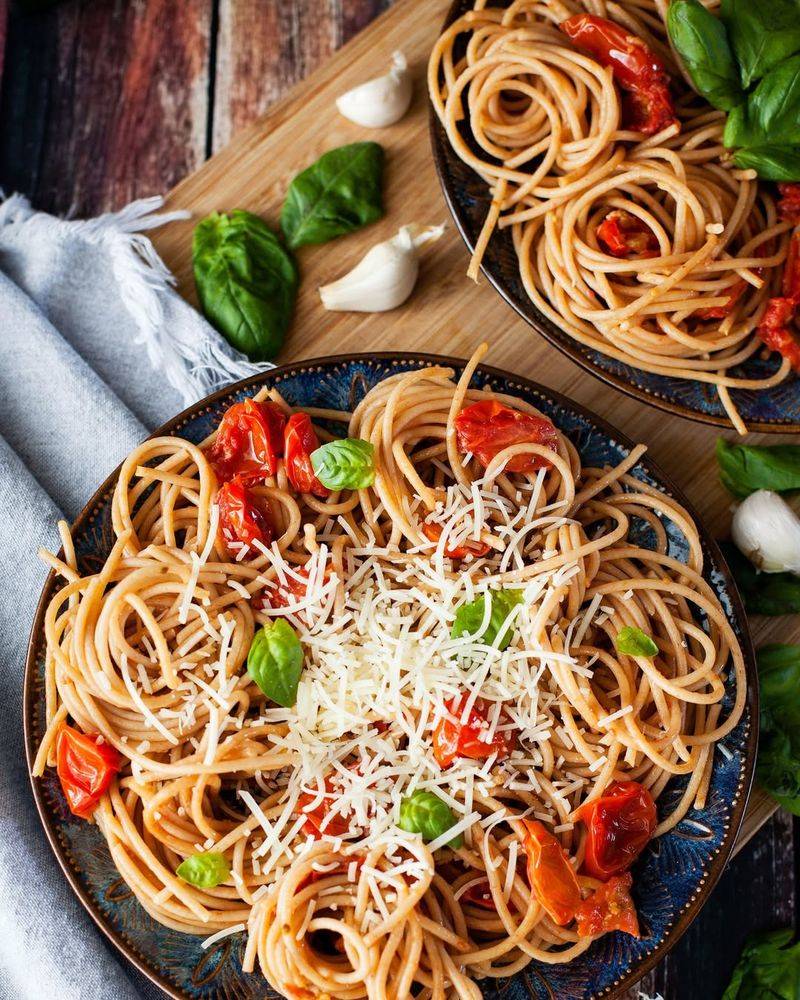
Whole-wheat pasta is a great alternative to white pasta. It’s higher in fiber and protein, which can keep you satiated longer and help stabilize blood sugar levels.
This makes it a suitable choice for those looking to manage their weight while still enjoying pasta dishes as part of a balanced diet.
14. Quinoa
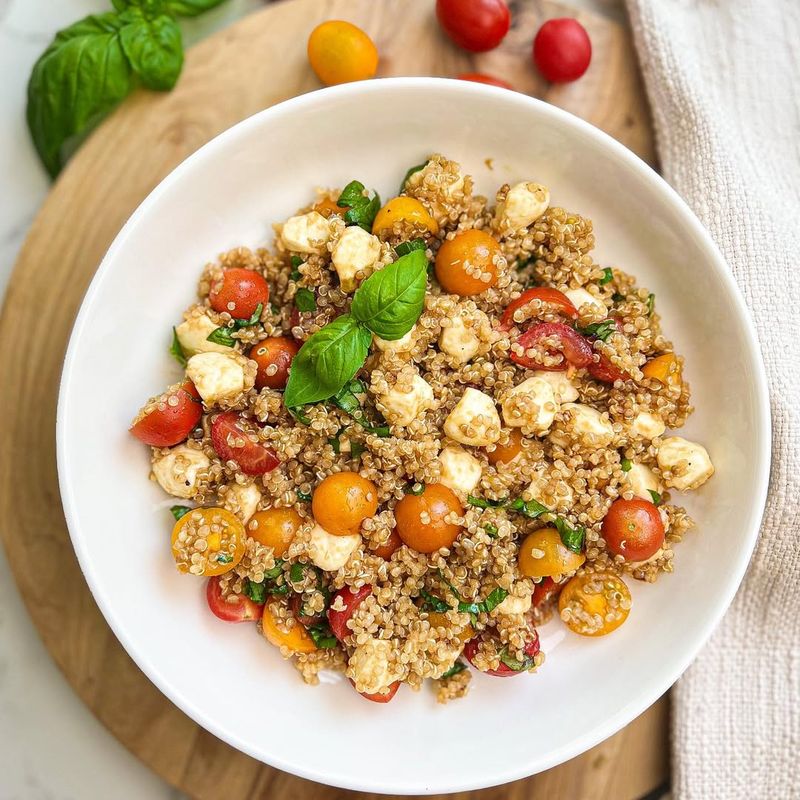
Quinoa is a nutrient-rich grain that’s high in protein and fiber. It provides a complete source of protein, making it a perfect addition to vegetarian and vegan diets.
Quinoa’s low glycemic index means it won’t cause rapid blood sugar spikes, making it an excellent choice for those managing their weight.
15. Brown Rice
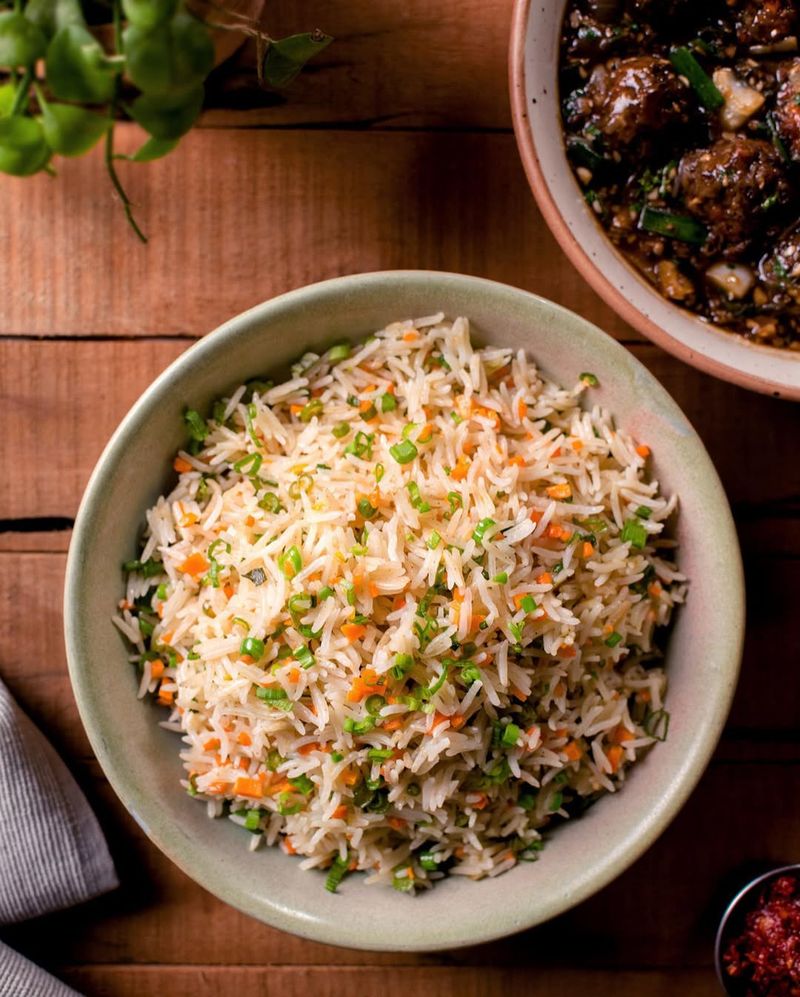
Brown rice is a whole grain that’s rich in fiber and essential nutrients. Unlike white rice, it retains its outer bran layer, offering more health benefits.
Brown rice provides fiber that promotes fullness, aids digestion, and helps stabilize blood sugar. This makes it a smart choice for weight management.
16. Oats
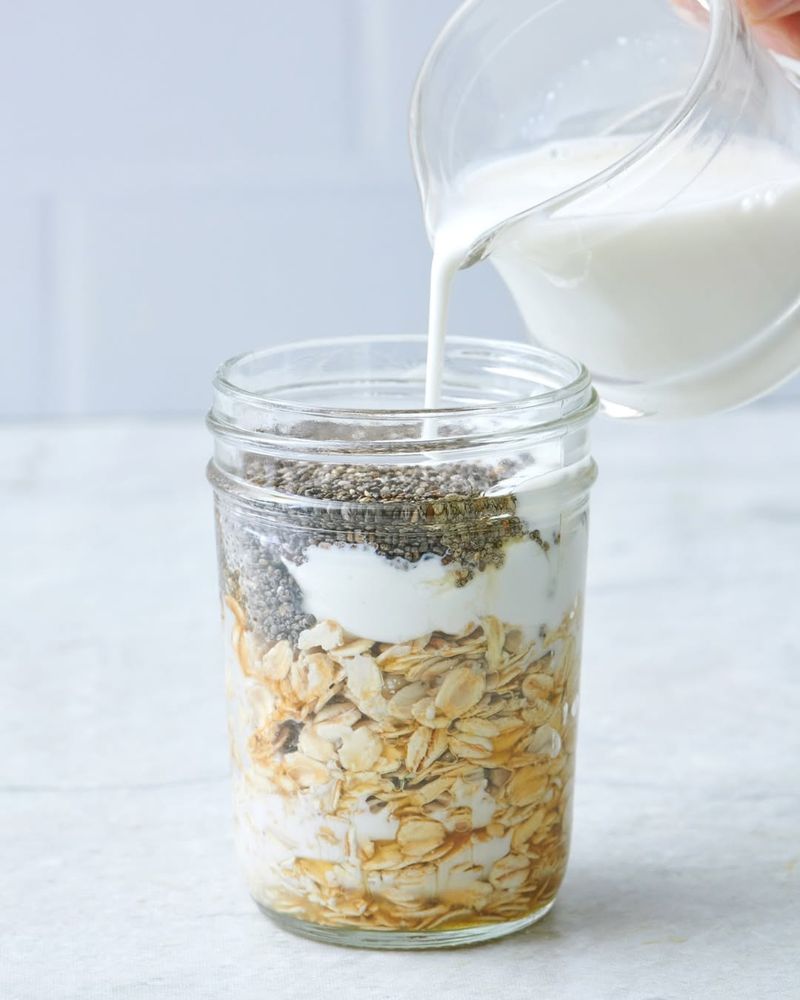
Oats are a nutritious whole grain that can help lower cholesterol and keep you full. They’re versatile and can be used in various dishes, from breakfast porridges to baking.
Oats offer a slow, steady release of energy, helping to keep you full longer. They’re a great choice for maintaining a healthy weight and balanced lifestyle.
17. Sweet Potatoes
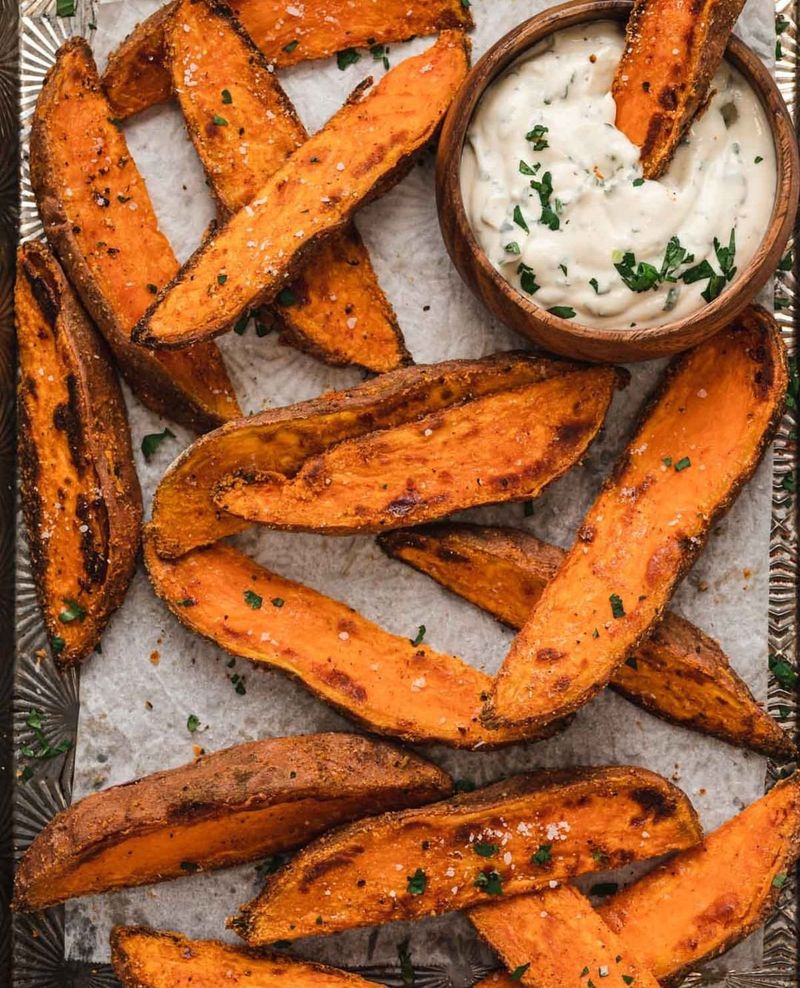
Sweet potatoes are a fantastic source of vitamins and minerals, including vitamin A and potassium. Their natural sweetness and fiber content make them a satisfying addition to any meal.
Unlike regular potatoes, they have a lower glycemic index, helping to prevent blood sugar spikes. This can support better energy levels and weight management.
18. Fruits

Fruits are naturally sweet and packed with vitamins, minerals, and fiber. They can satisfy sugar cravings without the added calories and sugars found in processed sweets.
Incorporating a variety of fruits into your diet provides essential nutrients and antioxidants, supporting overall health and aiding in weight loss.
19. Berries

Berries are packed with antioxidants and fiber, making them a nutritious choice. Their natural sweetness provides a satisfying and healthy snack option.
Eating berries can help reduce sugar cravings while supporting heart health. They also contain anti-inflammatory properties, contributing to overall well-being.
20. Legumes
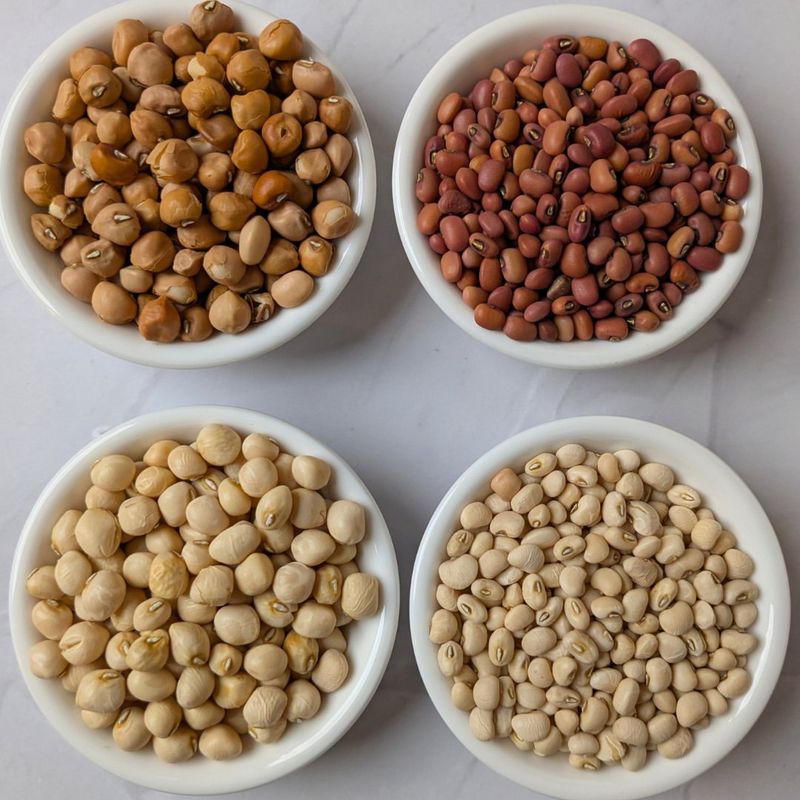
Legumes provide a rich source of plant-based protein and fiber, promoting fullness and satisfaction. Their high nutrient content makes them a great choice for weight management.
Adding beans, lentils, and chickpeas to meals can boost overall nutrition. These versatile ingredients support a balanced and healthy lifestyle.
21. Barley

Barley is a whole grain that’s high in fiber and can support digestive health. Its rich nutrient profile includes vitamins, minerals, and antioxidants.
Barley’s low glycemic index helps maintain steady blood sugar levels, making it a suitable choice for those looking to manage weight and improve overall health.
22. Lentils
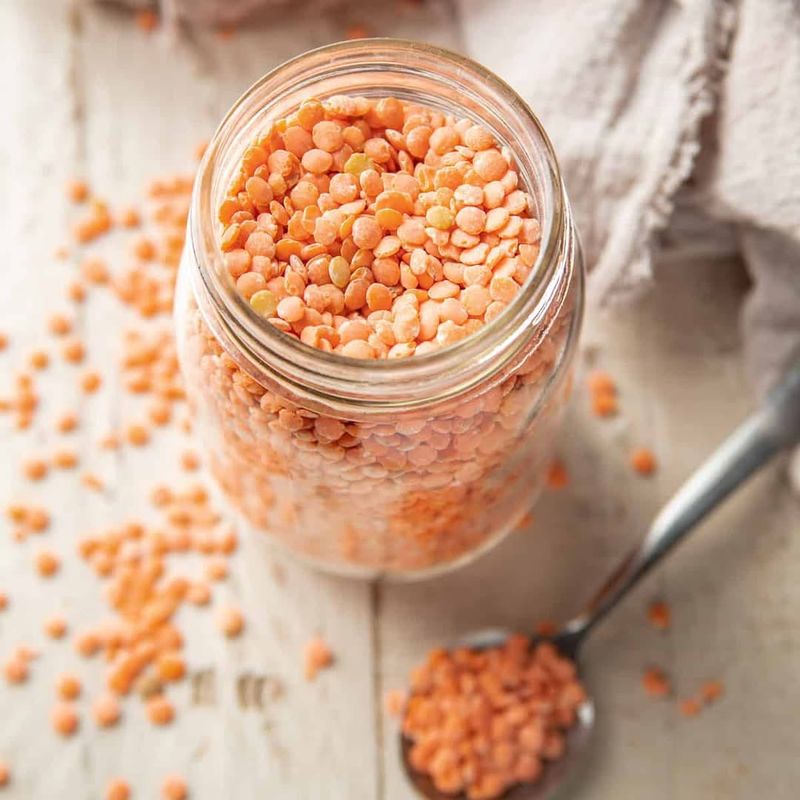
Lentils are a nutrient-dense legume, packed with protein and fiber, helping to keep you full longer. Their versatility makes them perfect for soups, stews, or salads.
Adding lentils to your diet can support weight loss by providing satisfying, low-calorie meals. They’re a delicious and healthy option for anyone looking to maintain a balanced lifestyle.
23. Beans
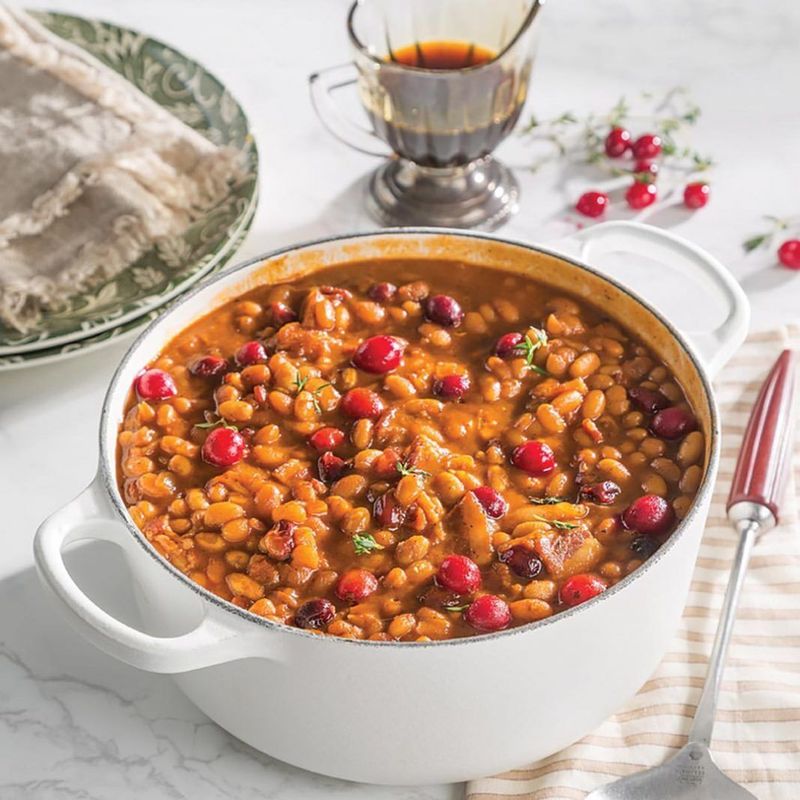
Beans are rich in protein, fiber, and essential nutrients, making them a great addition to any diet. Their filling nature helps maintain steady blood sugar levels.
Including beans in your meals can support weight management and offer a plant-based protein source. They’re a versatile and healthy option for a balanced lifestyle.
24. Whole-Wheat Bread
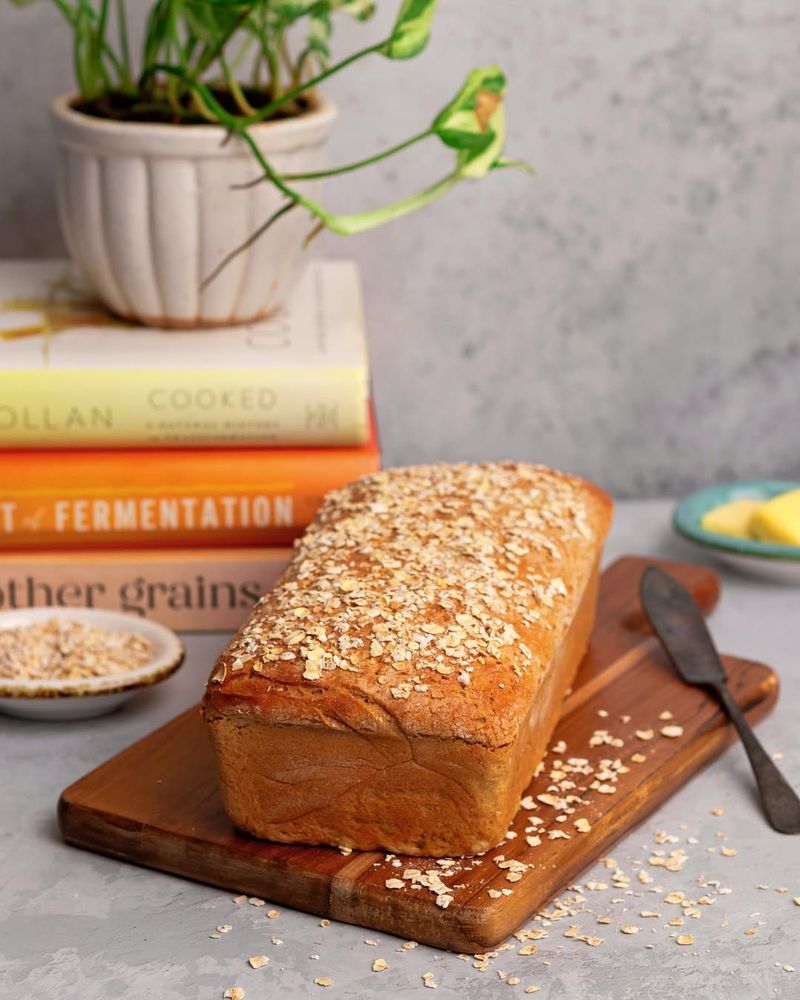
Whole-wheat bread provides more nutrients and fiber than white bread, helping you feel full longer and supporting weight management.
Opting for whole-wheat over white bread can improve digestive health and offer essential nutrients. It’s a smart choice for those seeking to enhance their diet and maintain a healthy lifestyle.
25. Fried Banana Chips
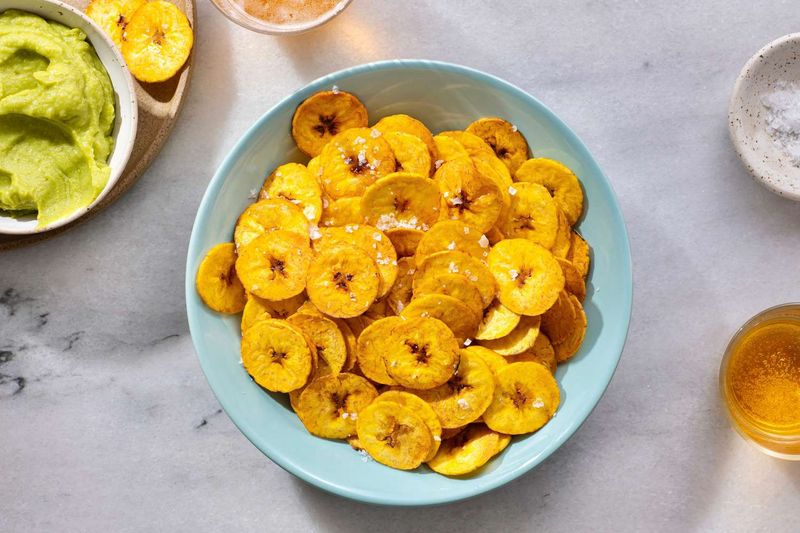
Ever crunched into a crispy, sweet banana chip and thought it was a healthy snack? These crunchy delights might seem harmless, but they are far from it. Often deep-fried and heavily salted, banana chips can be a sneaky source of unhealthy fats and calories.
Consider reaching for a fresh banana instead, which is packed with natural sugars and fibers to keep you satisfied.
26. Cauliflower Rice
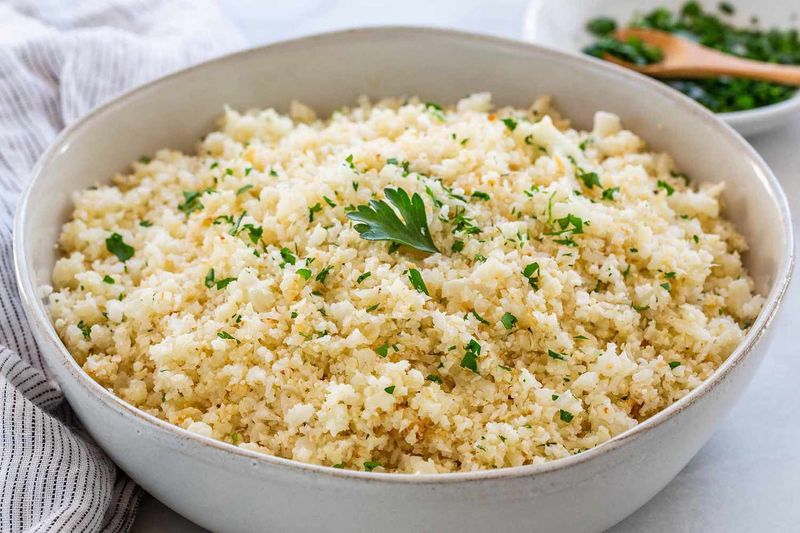
Cauliflower rice is turning heads in kitchens worldwide, offering a low-carb alternative to traditional starchy sides. This versatile veggie can be grated or processed to resemble rice, making it an excellent choice for those seeking to reduce carb intake.
Enjoy it steamed, sautéed, or even raw—its mild flavor makes it a perfect canvas for various dishes. With its high fiber content, cauliflower rice helps in feeling full longer without the added calories.

